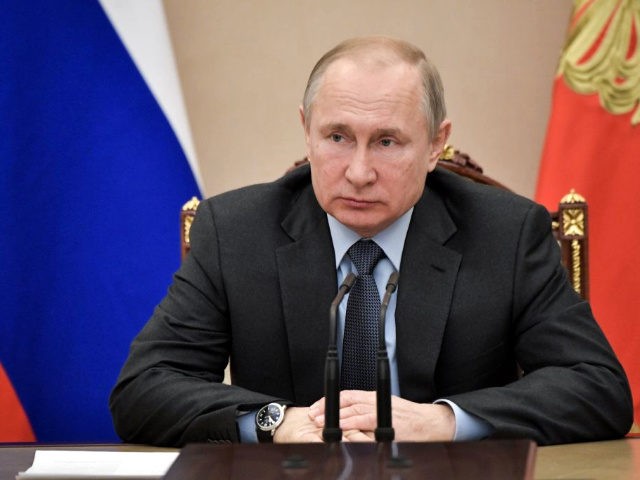Russia is intensifying its military presence and influence in Africa by “increasing arms sales, security agreements, and training programs for unstable countries or autocratic leaders,” a move that is causing concern in the West, the New York Times confirms.
In recent years, U.S. military officials and independent analysts warned against Russian activities in Africa, particularly in support of Libyan warlord Gen. Khalifa Haftar, whose Libyan National Army (LNA) from the breakaway government controls most of the nation, including the lucrative onshore oil fields.
When unveiling President Donald Trump’s Africa strategy in December 2018, U.S. National Security Advisor John Bolton also accused Russia of “predatory practices” that interfere with American military operations on the continent and pose a significant threat to America’s homeland security interests
More recently, Gen. Thomas Waldhauser, the commander of U.S. Africa Command (AFRICOM), expressed concerns about Russia’s deployment of paramilitary troops from the private military company Wagner Group into the Central African Republic (CAR) when testifying before American lawmakers in March.
Wagner is linked to the Russian military.
“Russia is also a growing challenge and has taken a more militaristic approach in Africa,” Waldhauser told lawmakers.
Echoing Waldhauser’s concerns about Russian activities in CAR and beyond, the NYT reports that the Kremlin is spreading across the continent, noting:
In the Central African Republic, where a Russian has been installed as the president’s national security adviser, the government is selling mining rights for gold and diamonds at a fraction of their worth to hire trainers and buy arms from Moscow.
Russia is seeking to ensconce itself on NATO’s southern flank by helping a former general in Libya fight for control over his government and vast oil market.
Sudan’s president, Omar Hassan al-Bashir, brought in Russian mercenaries in January to help shore up his rule against nationwide protests. And last spring, five sub-Saharan African countries — Mali, Niger, Chad, Burkina Faso and Mauritania — appealed to Moscow to help their overtaxed militaries and security services combat the Islamic State and Al Qaeda.
Russia, entrenched in Africa during the Cold War’s violent East-West rivalry, largely retreated from the continent after the collapse of the Soviet Union. But in the past two years, Moscow has rekindled relations with Soviet-era clients like Mozambique and Angola, and forged new ties with other countries. President Vladimir V. Putin of Russia will host a summit meeting between Moscow and African countries later this year.
Russia’s expansion across Africa echoes President Vladimir Putin’s goal of returning the country to its former glory.
Opportunity and necessity to advance on the continent are also reportedly driving Russia’s military activities in Africa.
NYT concedes that Russia is unable to compete with America’s foreign aid and China’s financial investment efforts.
Under Trump, the U.S. military is expected to prioritize combating strategic competitors Russia and China over the war on terror.
Despite the ongoing threat posed by Russia and China in Africa, the U.S. military has begun reducing its footprint on the continent as part of the new efforts to focus on Beijing and Moscow.
Waldhauser downplayed the reductions when testifying before lawmakers in March, saying they will not impact America’s counterterrorism fight on the continent.
Referring to the troop reductions, the general declared:
At the moment, we don’t see a significant issue there. And whether we’ll ever be directed to execute the second half [of the withdrawal] is to be determined. …If we feel that it’s not in our best interest to do so, we will…push back on the plan that’s in place at the moment.
U.S. military officials have begun the process of reducing the estimated 6,000 American troops in Africa by about 700.
Waldhauser told lawmakers that the current U.S. military presence in Africa is “adequate” to deal with the growing threat of strategic competitors China and Russia.

COMMENTS
Please let us know if you're having issues with commenting.